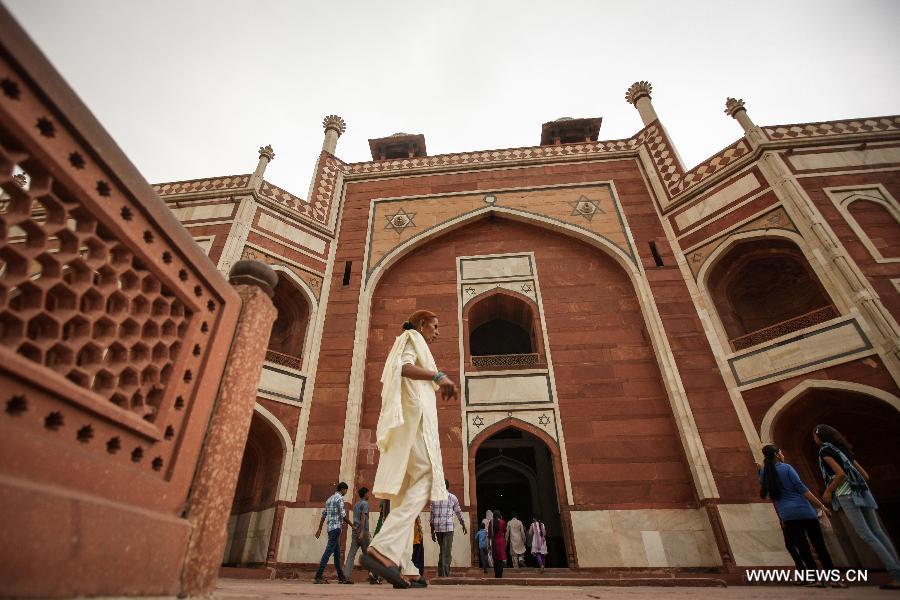
The citizens' rights to the freedom of religious belief are protected. China upholds the policy of freedom of religious belief, and ensures its citizens' freedom of religious belief as an important part of their human rights. The Chinese government exercises administration over religious affairs by law, and protects the legitimate rights and interests of religious groups. It strives to promote religious harmony, and gives play to the active roles of religious personages and common believers in promoting economic and social development. Based on the Regulations on Religious Affairs, the State Administration of Religious Affairs has enacted nine supporting regulations. The Chinese government proactively promotes the administration by law in the religious sector and strives to regulate its administrative power in this regard. In 2012 China canceled administrative approval on three items related to religious affairs and made adjustment to three other issues, and amended the Enforcement Regulations on Certain Issues Requiring Administrative Approval Regarding Religious Affairs. The state continues to help national religious organizations and religious institutions improve their working and teaching conditions. It properly handles social security insurance for religious staff and ensures that those entitled to social security get covered. The state handles, in accordance with the law, cases which hurt the feelings of religious believers, properly deals with the demolition of housing belonging to religious organizations and houses for holding religious activities in urban construction, and attaches importance to the protection of religious relics and distinctive religious cultural heritage. Currently, China has approximately 360,000 religious staff and 140,000 registered venues for religious activities that are open to the public, basically satisfying the needs of religious believers. There are in total 5,500 religious organizations carrying out their respective activities in an orderly manner. The state has approved the restoration and building of 97 religious institutions, and a relatively complete institution-based religious education system has been put in place. China supports the production and circulation of religious classics, periodicals and other publications according to law. By 2012 more than 100 million copies of the Bible had been printed in China, making it among the few countries in the world with the largest print-run of the Bible. The Chinese government supports exchanges in the field of religion: China hosted the International Daoism Forum in Hunan in October 2011 and the Third World Buddhism Forum in Hong Kong in April 2012.
The cultural rights of ethnic minority groups are protected. The state formulated and implemented the 12th Five-year Plan for Development of Undertakings Related to Ethnic Minority Groups. China's 55 ethnic minority groups have 515 of their representative cultural items included in the national intangible cultural heritage list, and have 524 individuals ranked as successors of their intangible cultural heritages. Five experimental zones on the protection of ethnic minority cultural ecology have been established, and 18 ethnic minority cultural items have been included in the Masterpieces of the Oral and Intangible Heritage of Humanity and the List of Intangible Cultural Heritage in Need of Urgent Safeguarding of the UNESCO. By May 2012 there were 73 radio broadcasting stations in ethnic autonomous areas, airing 441 programs including 105 programs broadcast in local ethnic languages; and there were 90 television stations broadcasting 489 programs, including 100 in local ethnic languages. By the end of 2011 books were published in 23 ethnic minority languages nationwide. There were also 84 newspapers and 223 periodicals published in ethnic languages. A total of 50,834 cultural institutes of various types were operating in ethnic autonomous areas, including 653 libraries, 784 cultural centers, 8,153 cultural stations and 385 museums. The state holds national art shows and national sports events of the ethnic minority groups. Since 2009 China's central finance has invested a total of 510 million yuan in implementing the program for protecting and developing ethnic minority villages with unique characteristics, and pilot runs of the program have been initiated in 600 villages in 28 provinces, autonomous regions and municipalities directly under the central government. The state pays special attention to the protection of ethnic minority languages. China National Radio and local radio stations broadcast in 21 ethnic languages on a daily basis. Bilingual teaching is done in the classroom in more than 10,000 schools around the country, using 29 languages of 21 ethnic groups together with mandarin, offering bilingual instruction to over six million students. In 2011, 3,665 titles of ethnic language textbooks were published, with a total print-run of over 47,030,000 copies.
Important progress has been witnessed in the protection and inheritance of cultural heritages. In 2011 the NPC Standing Committee enacted the Intangible Cultural Heritage Law, which provides a legal basis for the inheritance and promotion of China's fine traditional culture by legalizing the protection, preservation, inheritance and transmission of the country's intangible cultural heritages. In 2011 the state completed the third national survey of cultural relics, and verified and registered about 770,000 immovable cultural relics. The State Council announced 2,352 key national cultural relic protection units in six batches, including 119 historical cities and 350 towns and villages of historical and cultural value. It also announced 1,219 items of the state-class intangible cultural heritage list in three batches. The Ministry of Culture named 1,986 representative inheritors of national cultural heritages in four batches, and set up 15 national experimental zones for the protection of cultural ecology. By the end of 2012 China had altogether 41 world heritage sites, ranking third in the world. Twenty-nine of the country's intangible cultural heritages were included in the UNESCO's Masterpieces of the Oral and Intangible Heritage of Humanity, seven were included in the List of Intangible Cultural Heritage in Need of Urgent Safeguarding, and one was included in the Register of Best Safeguarding Practices.
【11】 【12】 【13】 【14】 【15】 【16】 【17】 【18】 【19】 【20】
【21】 【22】


















 Father arrested for 'torturing' teen daughter
Father arrested for 'torturing' teen daughter


![]()
